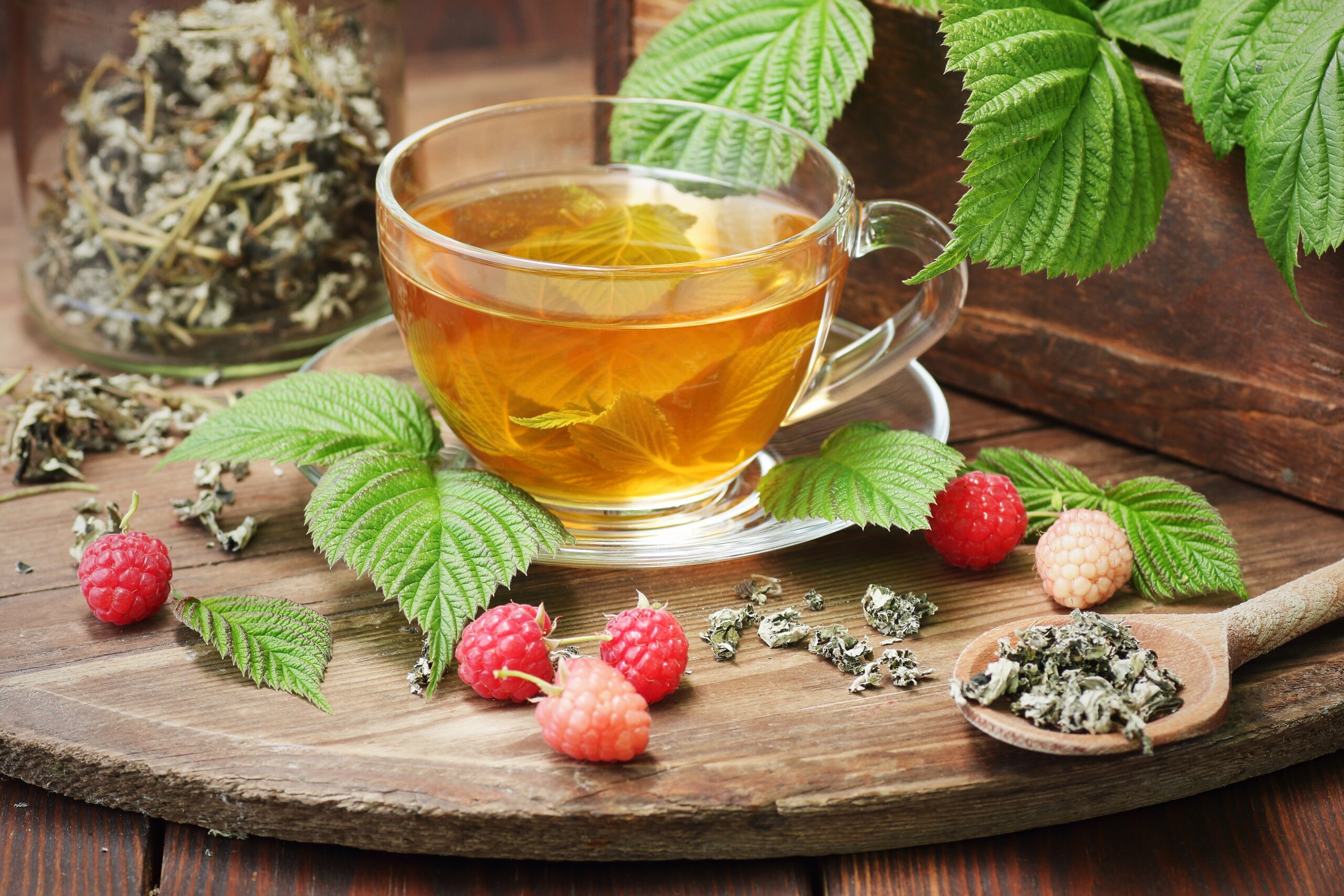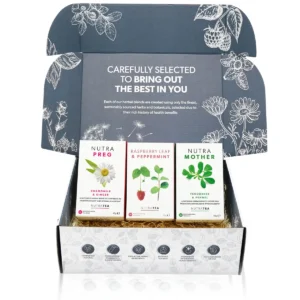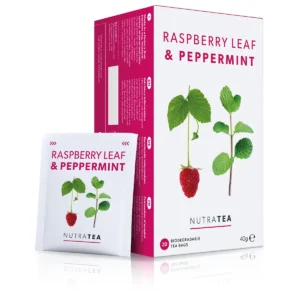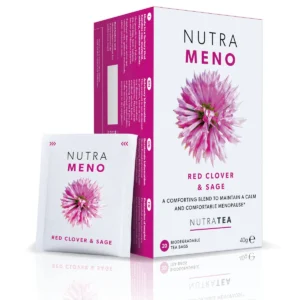NutraBlog
Can Raspberry Leaf Tea Really Support Women’s Health?

Looking for a natural way to support your hormonal health? Raspberry leaf tea has long been used to help ease menstrual cramps, tone the uterus, and support women during pregnancy and menopause. But does it really work? In this guide, we explore the traditional uses and potential benefits of this herbal blend for women’s health — from period relief to perimenopause support. You’ll also discover how blends like NutraTea’s Raspberry Leaf and Peppermint and NutraMeno combine time-tested herbs to gently support you through every life stage. Whether you’re curious about natural remedies or already love herbal tea, here’s what to know before adding raspberry leaf to your daily wellness routine.
When it comes to natural remedies for women’s health, raspberry leaf tea has earned a well-deserved place in the spotlight. Traditionally used to support the reproductive system, this herbal infusion is often recommended during different stages of a women’s life, from easing menstrual discomfort to preparing the body for labour.
But how much of this is backed by tradition, and how much is supported by science?
At NutraTea, we believe in the power of herbs to gently support your wellbeing, and raspberry leaf tea is no exception. In this guide, we’ll explore the history and potential benefits of raspberry leaf, and how blends like NutraMeno and Raspberry Leaf and Peppermint may support your health naturally.
What is raspberry leaf tea?
Used in traditional medicine for centuries, especially for women’s health concerns, raspberry leaf tea is made from the leaves of the red raspberry plant (Rubus idaeus), not the fruit.
Used in traditional medicine for centuries, especially for women’s health concerns, it’s caffeine-free, packed with antioxidants, and contains key nutrients, such as:
- Fragrine (an alkaloid believed to tone pelvic muscles)
- Magnesium, potassium, and iron
- Vitamins A, B, and C
This combination makes this herbal tea a gentle but powerful ally when it comes to hormonal balance, muscle tone, and menstrual wellbeing.
What are the potential benefits of raspberry leaf for women?
Menstrual support
Many women use raspberry leaf tea to help manage menstrual symptoms. Its antispasmodic properties may help soothe cramping, while its muscle-toning effects may support a smoother menstrual cycle over time.
Our Raspberry Leaf and Peppermint herbal blend combines the traditional benefits of raspberry leaf with the refreshing and calming properties of peppermint, which may also help relieve the bloating and digestive discomfort often associated with your cycle.
Uterine tone and reproductive health
Raspberry leaf is widely used in traditional herbalism to support uterine tone. While more research is needed, it’s thought that the compound fragrine may help strengthen the uterus and pelvic muscles, making it a popular herbal support during the later stages of pregnancy and labour preparation.
Always speak to you midwife or healthcare provider before using raspberry leaf tea during pregnancy.
Perimenopause and menopause support
The hormone shifts of perimenopause and menopause can bring unpleasant symptoms like hot flushes, mood changes, and fatigue. Raspberry leaf, when used alongside other supportive herbs, may offer comfort.
Our NutraMeno blend is specifically formulated for this stage of life, with raspberry leaf, sage, liquorice, and black cohosh – herbs traditionally used to support hormone balance and ease menopausal symptoms. Whether you’re experiencing night sweats or simply looking for natural support, NutraMeno offers a natural, herbal solution.
Is raspberry leaf tea safe to drink every day?
In general, raspberry leaf blends are considered safe for most women and can be enjoyed regularly. However:
- During pregnancy, it’s usually recommended only in the third trimester and always with guidance from your healthcare provider.
- If you’re on medication or have a hormone sensitive condition, speak with your doctor before introducing any new herbal teas or supplements.
As with any herbal remedy, moderation and professional guidance are key.
How to enjoy raspberry leaf tea
Raspberry leaf tea can be enjoyed hot or cold, and its mild, slightly earthy flavour pairs well with herbs like peppermint or lemon balm. For daily support:
- Sip NutraTea Raspberry Leaf and Peppermint in the days leading up to and during your period
- Try NutroMeno as part of your daily self-care during perimenopause or menopause
- Enjoy a calming cup in the evening to help unwind and support hormonal balance naturally
Natural support made simple with NutraTea
At NutraTea, we blend the wisdom of traditional herbalism with modern formulations to support your wellbeing at every life stage. Whether you’re navigating PMS, preparing for birth, or managing menopause, raspberry leaf ta can be a natural, nourishing part of your daily routine.
Explore our full range of functional blends and discover how herbs like raspberry leaf can help you feel more balanced, more supported, and more in tune with your body, one soothing cup at a time.
Your Questions Answered
What does raspberry leaf tea do for women’s health?
It may help support menstrual comfort, improve uterine tone, and offer natural hormone support, especially during pregnancy and menopause.
Can I drink raspberry leaf tea during my period?
Yes, many women find it soothing. It may help relieve cramps and support smoother cycles, especially when paired with herbs like peppermint.
Is raspberry leaf tea safe in pregnancy?
It’s often used in the third trimester to support labour preparation, but always consult your midwife or doctor first.
What’s the best raspberry leaf tea for menopause?
NutraTea’s NutraMeno is blended with raspberry leaf, sage, and black cohosh for a holistic, herbal approach to menopause support.



